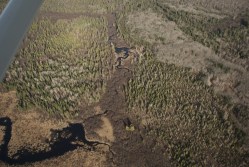from http://ashlandcurrent.com
Citizens from around the state are planning to protest the proposed Assembly iron mining bill Wednesday and Thursday, according to the Wisconsin Network for Peace and Justice.
A “Bury the Bill” rally will take place on Wednesday at 5 p.m. at the State Capitol on the State Street steps.
Then, Thursday from 10 a.m. to 6 p.m., a “People’s Tribunal” will take place in the north hearing room of the Capitol building’s second floor.
The Wednesday rally will feature speakers including Wisconsin Democracy Campaign Director Mike McCabe, Laura Gauger of the Wisconsin Resources Protection Council, Ben Manski of Wisconsin Wave, and attorney Glenn Reynolds. Photos and maps of the area around the proposed open-pit iron mine in Ashland and Iron Counties will be available for public viewing, and a short performance will demonstrate the impacts the bill could have on the Northwoods.
At the Thursday tribunal, anyone who wants to speak publicly will be invited to speak about the proposed legislation and mining in general.
The Wednesday protest and Thursday Tribunal are hosted by Madison for the Penokees. Participating organizations include the Penokee Hills Education Project, Mining Impact Coalition of Wisconsin, Wisconsin Network for Peace and Justice, SaveTheWatersEdge.com, Wisconsin Democracy Campaign, Sierra Club, Wisconsin Resources Protection Council, Midwest Environmental Advocates, Madison Infoshop, Family Farm Defenders, Take Back the Land-Madison, Groundwork White Anti-Racist Collective, Deep Green Resistance–Wisconsin, Lake Superior Greens, Madison-area Urban Ministry, and People Empowered to Protect the Land of Rosendale.




